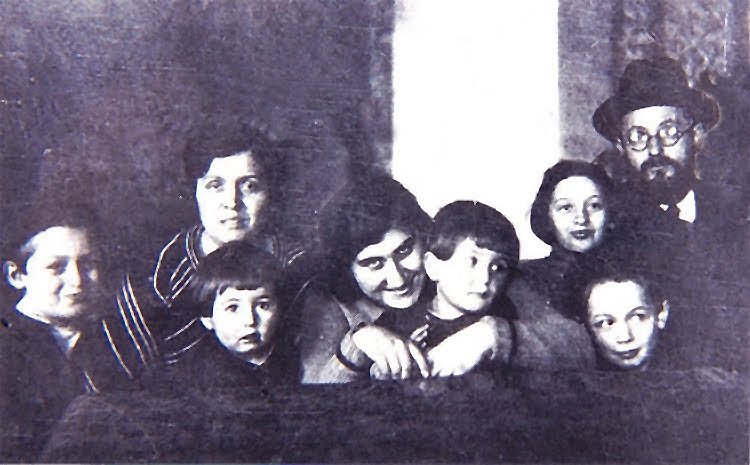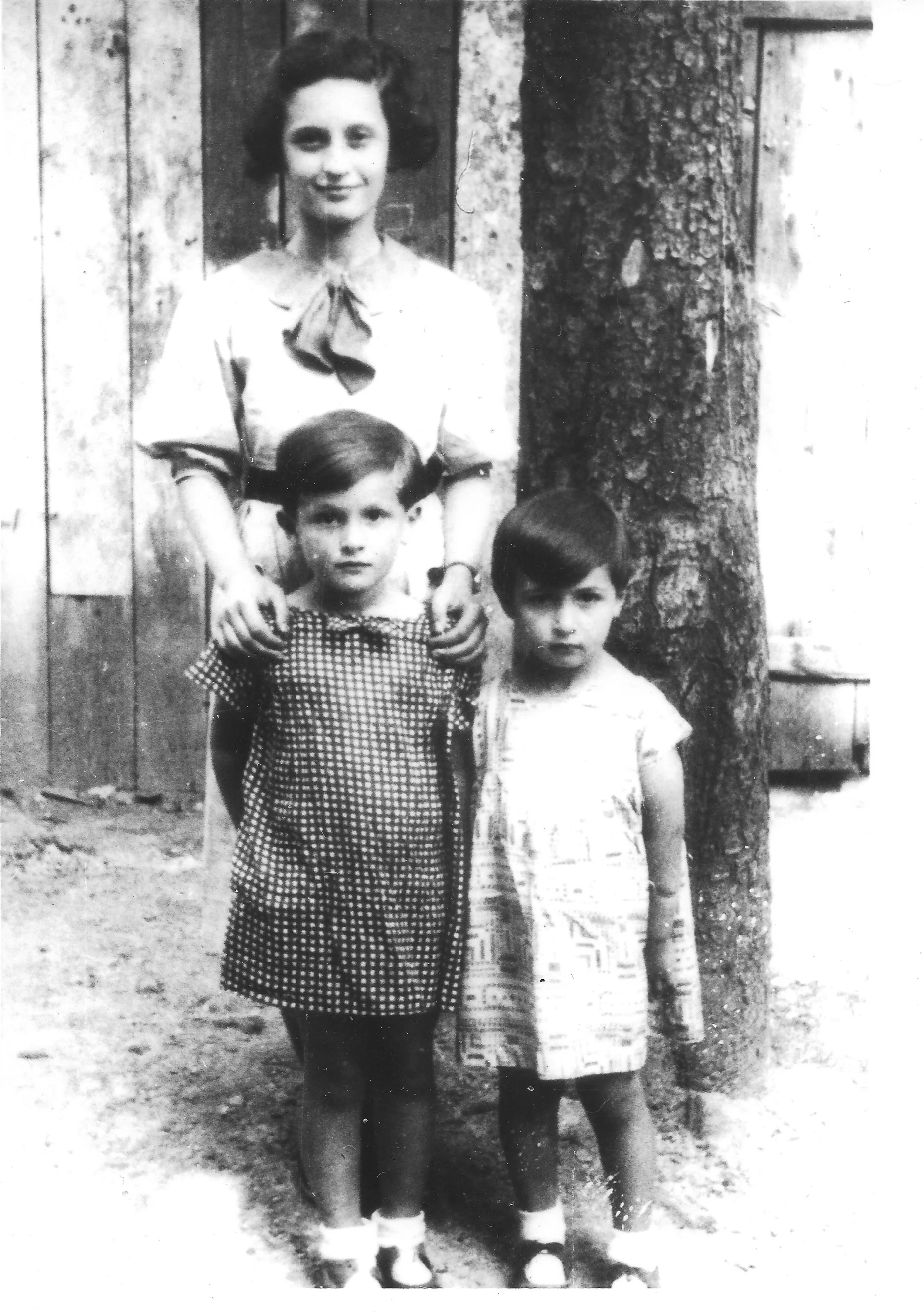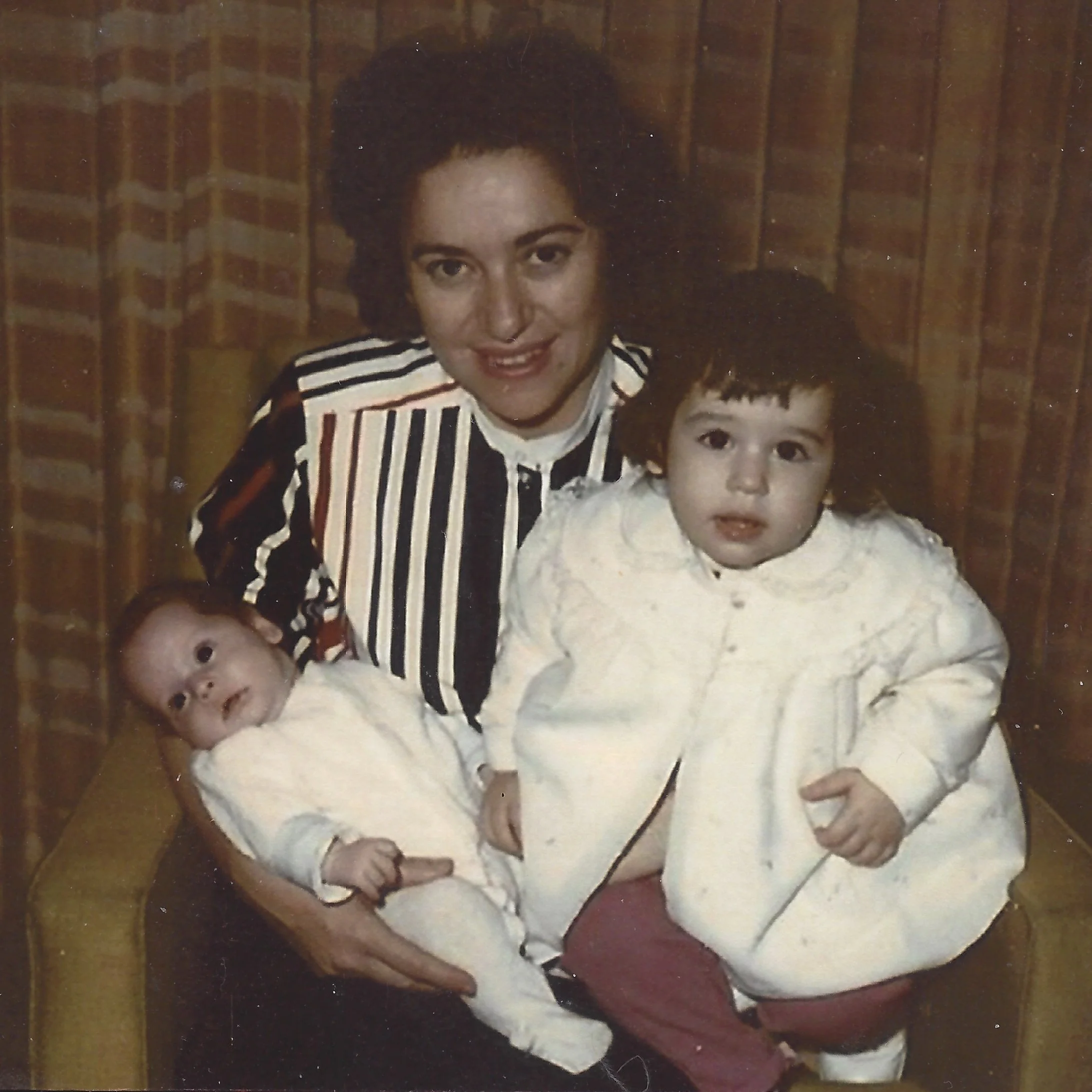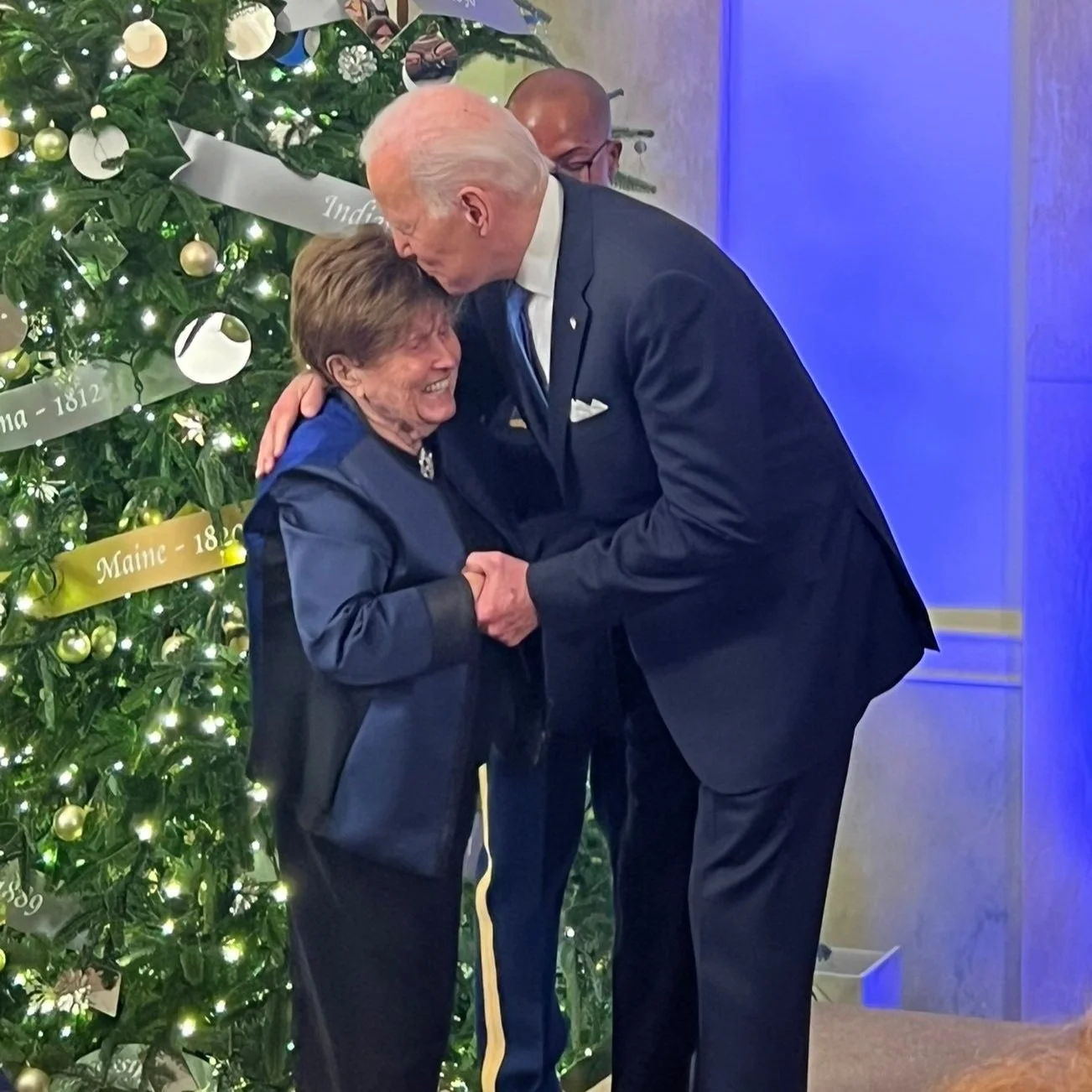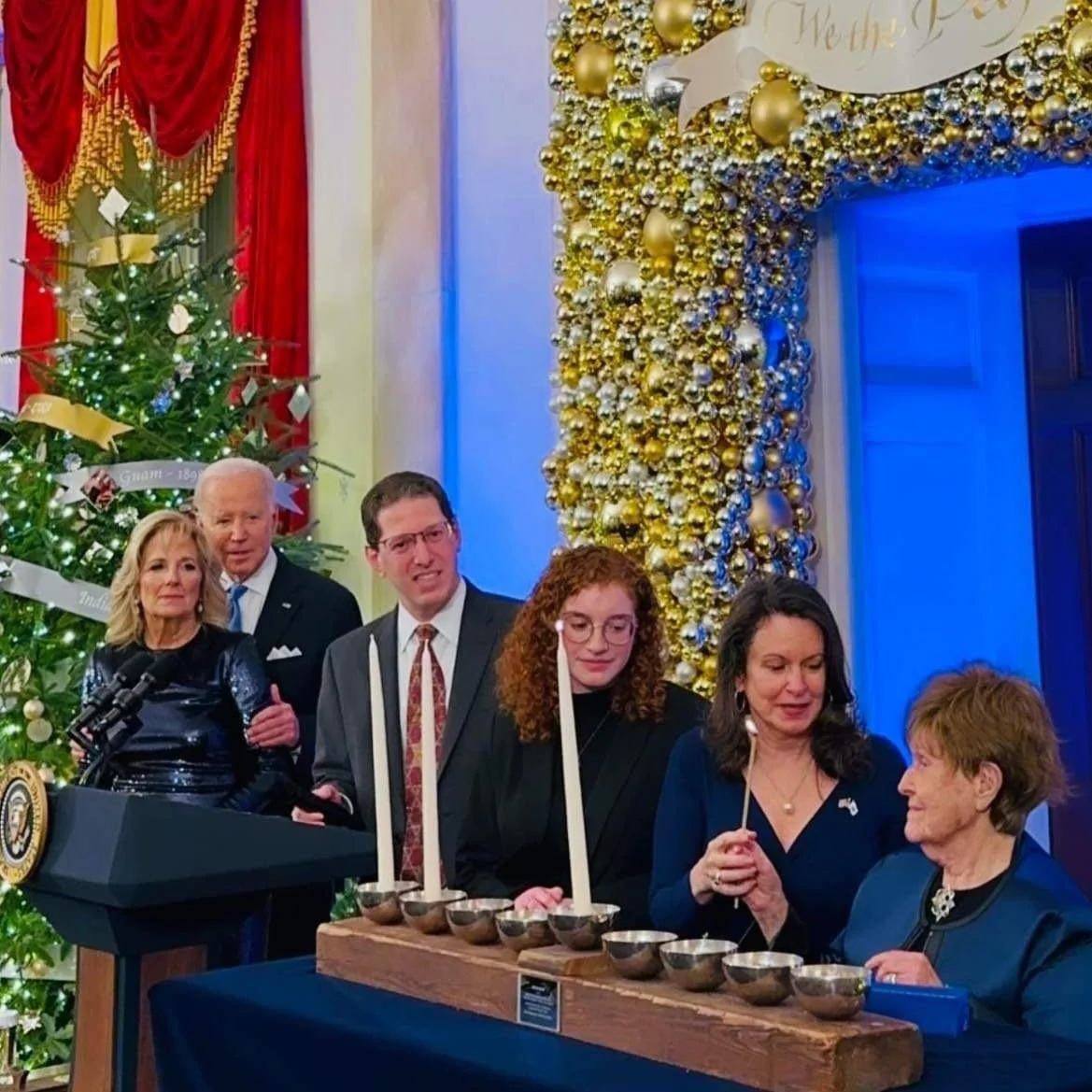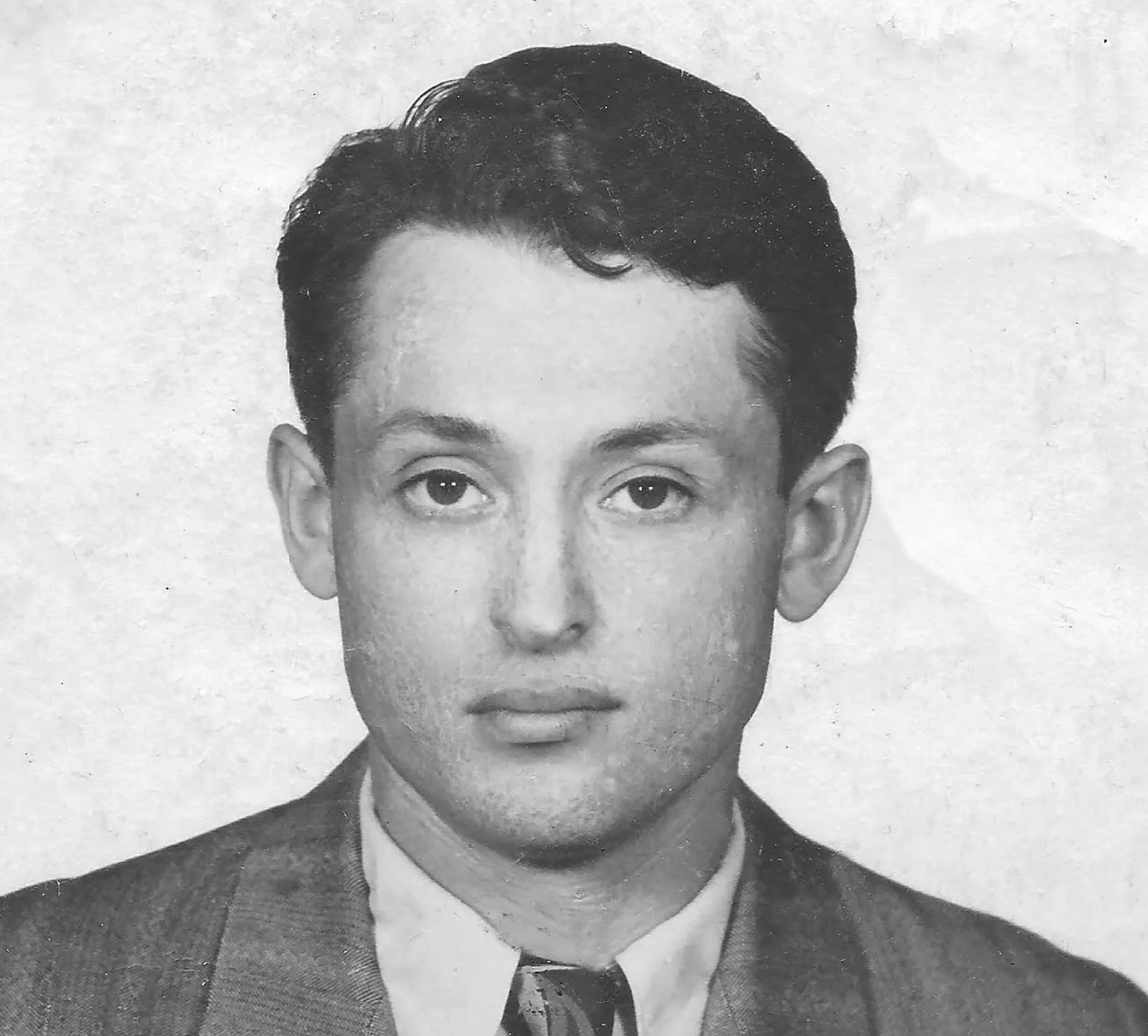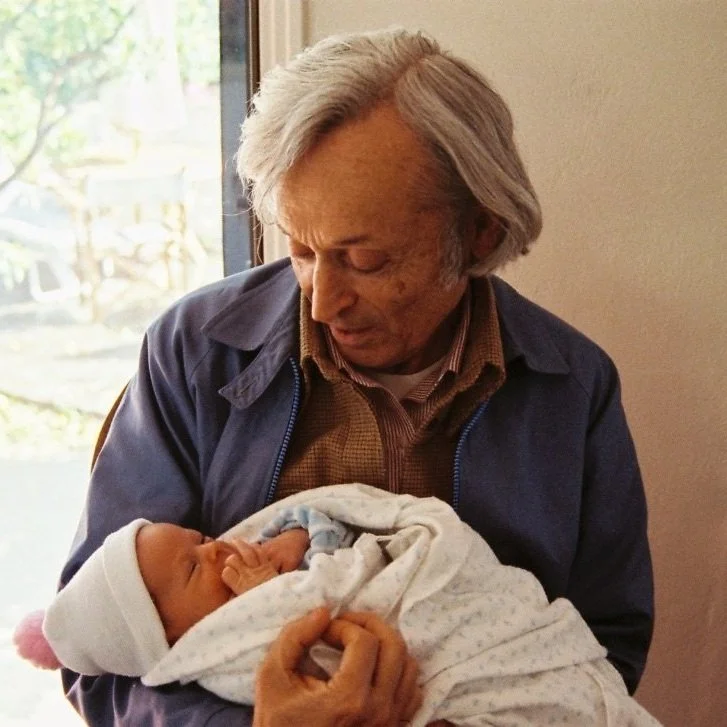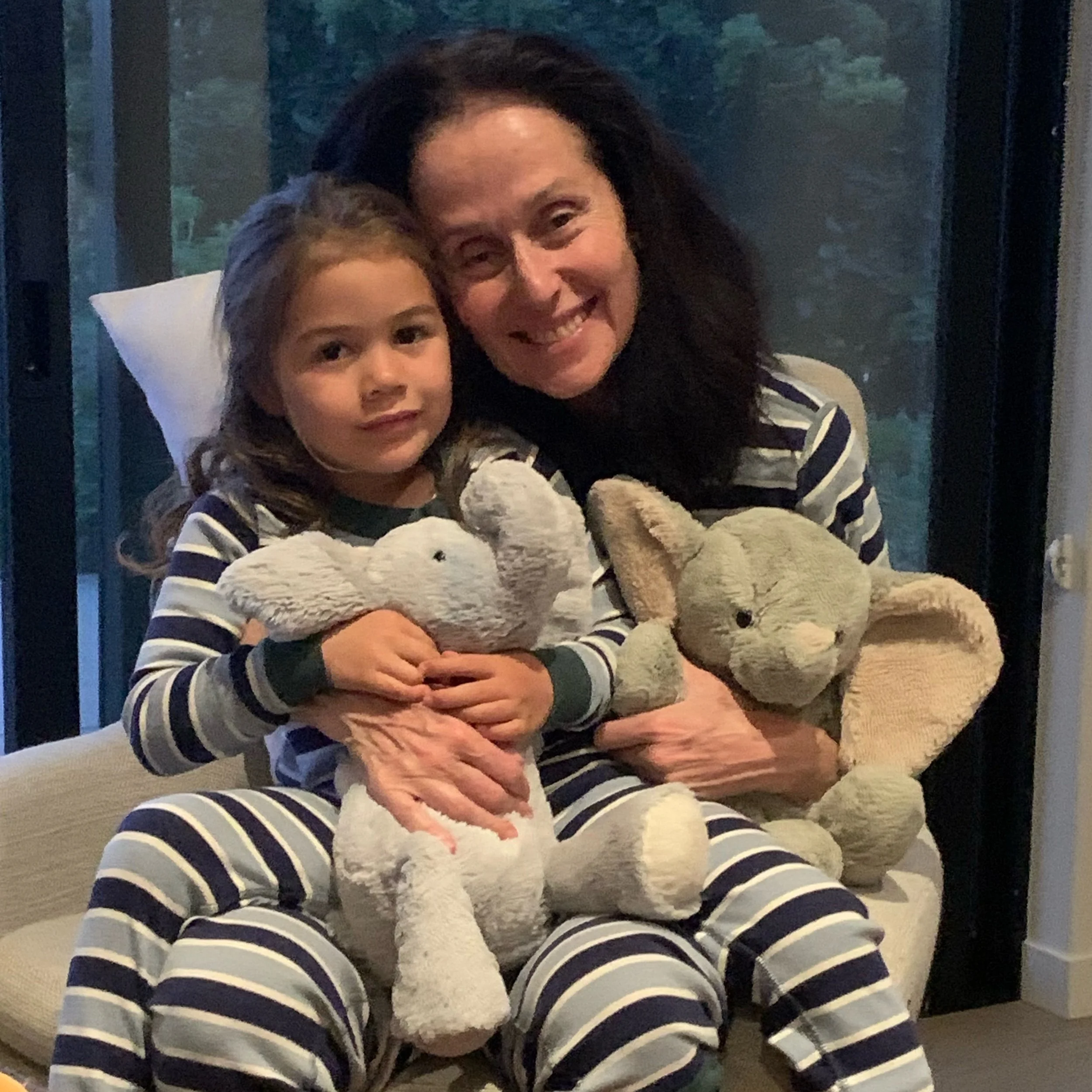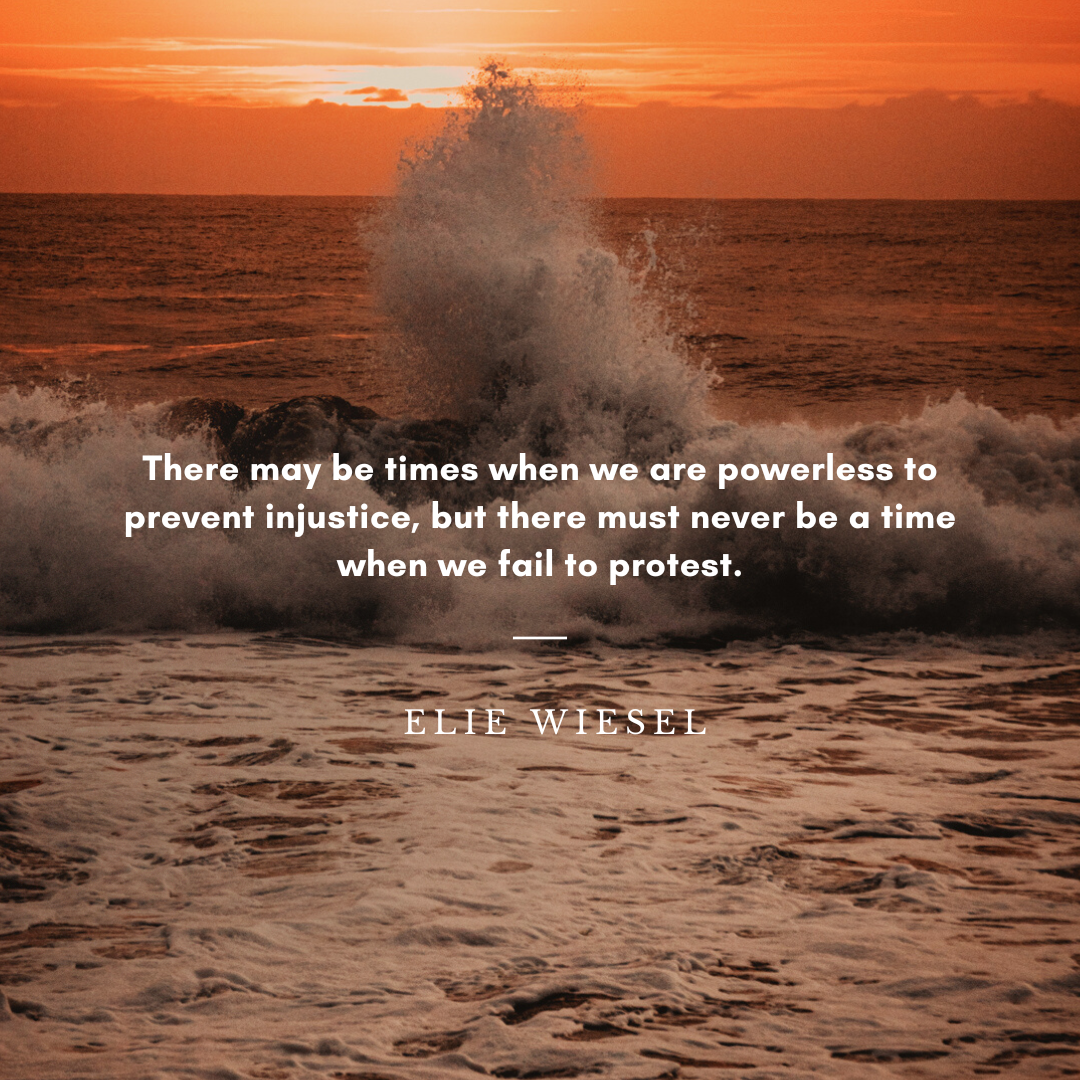Untethering from Terror
Reflections on International Holocaust Remembrance Day
Today is International Holocaust Remembrance Day—a day to remember and pay tribute to the millions of victims of the Holocaust and reaffirm our commitment to always stand firm against all forms of racism and prejudice.
Holocaust Remembrance Day marks the anniversary of the liberation of Auschwitz-Birkenau on January 27, 1945—the Nazi concentration camp where the majority of my family was murdered: all four of my grandparents, my uncle, three aunts, and dozens of cousins. My mother Edith, her sister Tova, and my father’s sister Bronia are my only immediate family members who survived deportation to Auschwitz. My father Mendek managed to live through three years of starvation and brutality in seven different Nazi slave labor concentration camps—the only survivor out of the group of forty teenagers and young men from his village who were deported together in 1942.
Mendek (far left) as a child in Jaworzno, Poland, with sisters Bronia and Rutka, brother Tulek, Mother Ida, cousin Liba, sister Mila, and father Israel.
Both my parents were forever altered by their experiences of overwhelming loss, cruelty and humiliation—not only during the Holocaust, but before and after as well. Year by year, my understanding of the countless ways this inherited legacy has impacted me continues to grow. Being the descendant of people who were starved, violently abused, and hunted for extermination brings tremendous fear, sorrow and turmoil.
Even when I am filled to the brim with love and joy as I hold my young grandchildren in my arms, I often can’t help but think about all my relatives who could not protect their sweet, beautiful children from being starved or murdered. Despite all the progress I’ve made during years of dedicated healing work, that helpless, terrified energy is still very much alive in my psyche and nervous system.
Myra’s aunt Mila, who she was named after, with younger sisters Bronia (left and Rutka
I am still attempting to decipher the many ways the trauma of the Holocaust has been passed down to me. Although my parents never discussed their past when I was growing up, I always sensed an unspoken darkness in the silence that was thick with terror and grief—a reality too sensitive to touch, and so horrible as to be unspeakable.
When I was 16—the same age my mother was when she was in Auschwitz—I studied the Holocaust in college. Discovering countless horrific, sickening truths I couldn’t bear to believe ended up destabilizing me. Terrifying nightmares and panic attacks accelerated into an emotional breakdown.
Increased psychological turmoil and physical epigenetic changes in children of survivors have been well documented. My sister recently pointed out that the eggs that would eventually give us life were fully formed in our mother’s ovaries while she was a starved, terrorized prisoner in Auschwitz. In a very real way, the two of us were actually there.
For most of my life, I tried to ignore my personal pain around the Holocaust, believing it was inconsequential compared to what my parents endured. Now I understand that suffering doesn’t diminish just because it is held up for comparison. The pain of second and third generation survivors needs to be named and added to the tally inflicted by the Nazis and their accomplices. It remains an echo of that time—a highly damaging aftershock that is still reverberating.
Myra’s mother Edith with Myra (left) and her sister Ruthie
While I am deeply committed to untethering myself from a legacy of terror and anguish, I can’t ignore that we live in a country where incidents of harassment, vandalism and violence directed at Jewish people have been steadily rising. Unfortunately, fears of antisemitism are neither unfounded nor irrational. The Holocaust is a potent reminder of the enormous cruelty humans can inflict on one another, and where unchecked scapegoating and hatred can lead. We must be vigilant and outspoken when faced with racism and prejudice in all its forms.
My 91-year-old Aunt Bronia continues to devote her life to educating as many people as possible about the Holocaust. She has spent decades speaking to large groups of people from around the world, recounting the terrible horrors she and her family were forced to endure. Her presentations are so powerful because every single time she emanates the immense love and heartbreak she will forever carry for the siblings, parents, aunts, uncles, and cousins she lost in such a terrible way. The intensity of her pain, grief, and outrage is tangible.
On Holocaust Remembrance Day last year, Bronia spent 90 minutes in a private audience with President Biden, followed by the opportunity to tell her story to hundreds and thousands of people on the White House social media feeds. Last month, she was invited back to the White House to be part of their Chanukah celebration, where she lit a candle on the White House’s first menorah. Bronia’s relentless drive to share her story and speak her truth is making an impact. Her voice is being heard.
Bronia at the White House Chanukah celebration, December 2022
My father’s efforts to heal his trauma spurred his awakening journey and motivated him to focus on fully embracing the present moment. “When I look at the world through the eyes of the past, I am miserable.” he wrote, “But when I live in the now, unhappiness doesn’t exist, because I’m not keeping it alive inside of me.” He believed that a good memory is one that remembers the good, and often said, “It’s not that I deny the past. I just don’t live in it.”
Yet my father was incredibly passionate about sharing his discoveries about human conditioning. He thought it was urgent for people to understand that we were all born pure and perfect, but that our minds can be programmed to believe anything at all. “The power of beliefs to create both good and evil should never be underestimated,” he wrote.
When he talked about the German soldiers who murdered his family, my father believed that just like him, they learned through imitation, repetition, and force of habit. Even as a teenager observing his captors, he often wondered if he would have been just as cruel if their upbringings had been swapped. “I hate to think what I might have been like if I’d been born a German boy raised during the days of Hitler,” he wrote.
Mendek in his 20s
One of UNESCO’s main goals for International Holocaust Remembrance Day is to educate people about the causes, dynamics and consequences of hate crimes and to strengthen the resilience of young people against ideologies of hatred. I believe this essential objective is where my father’s and Bronia’s life missions intersect.
On this occasion of international remembrance, while I hold my family close to my heart, I know that freedom, joy and peace is what my father would wish for his children and grandchildren. As I continue to place one foot in front of the other in my attempt to untether myself from such immense darkness, I am so grateful to have my dad as a beacon of light—a real-life example of someone who broke free and reclaimed his ability to connect with and enjoy all that is beautiful and sustaining in this world.
Mendek with his newborn granddaughter Marea
Myra with her grandson Feliciano

